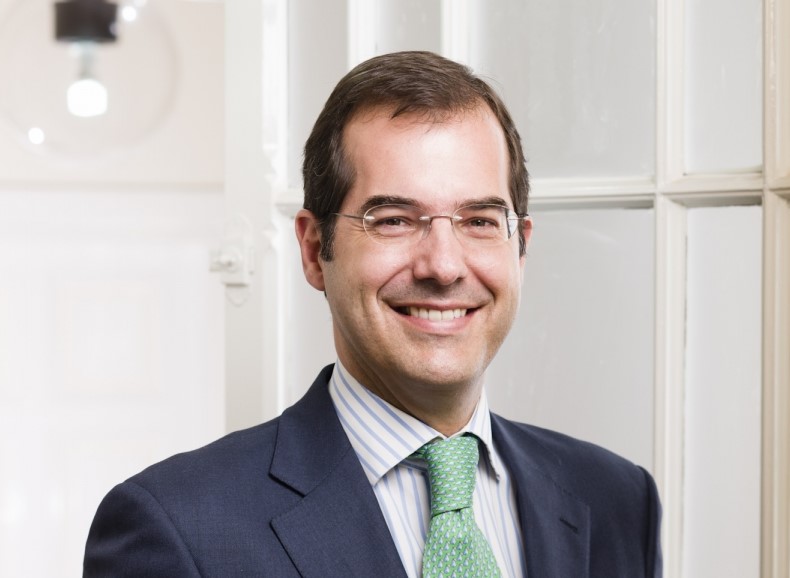Spanish merchant solar intrigues financing market
Voltiq pushes the envelop for non subsidized renewables

Solar PV is expected to make up a large portion of Spain's upcoming renewable energy auction. But for those projects that miss out on a subsidy, much hope is being pinned on a potentially thriving merchant market.
Spanish developer Grupo Enerpro is reported to have connected Spain's first utility-scale subsidy-free solar park back in 2014, but since then, progress in the country's muchtalked-about merchant market has been slow. Part of this is a consequence of the country's retroactive tariff cuts in 2013, which led to a widespread standstill in greenfield development, with many investors still feeling the effects. However, practitioners note a gear change in the last year and report renewed momentum in the Spanish market, triggered by the prospect of a new 3GW tariff auction on the horizon.
International developers and investors are now returning. In the case of PV, some will enter their projects into the auction and many will win tariffs. For those that don't, there appears to be a growing acceptance that operating plants on a merchant basis is a viable option.
Indeed, the Dutch-Spanish financial advisory boutique Voltiq is one of a number of advisers hoping to secure debt arranging mandates for merchant solar projects in Spain. "These will be hairy deals – not clean or crisp – and we are aiming for no recourse against the sponsor," says Manuel Cabrerizo, Voltiq co-founder and a partner in its Madrid office. "But the market will evolve over time and we are quite certain that there will be a Spanish merchant market in the near future."
Voltiq has something of an advantage in that it already has one merchant solar deal under its belt – namely the 146MW Laberinto PV plant in Chile, which reached financial close in 2015. In a market historically dominated by multilaterals and export credit agencies, four commercial lenders – Corpbanca, DNB, Banco BICE and CaixaBank – provided financing, despite the fact the project has no contracted revenues and instead intends to sell its electricity on the spot market. "We did that deal on the basis of long-term power price projections from a market expert," recalls Cabrerizo.
"Of course you sensitise your model, you include 100 variables and run all sorts of scenarios. This affects your debt sizing because the cover ratio needs to be larger, and because lenders are more afraid of volatility than they would be on contracted deals, but it is doable."
As a precursor to a pure merchant solar market, many see corporate power purchase agreements (PPAs) playing a bigger role in Spain in the coming years. Large corporates such as Google, Apple, Facebook and IKEA have built up a significant portfolio of renewables assets globally from which they buy the power generated. To date, countries like Norway and Sweden have been among the frontrunners. In contrast, the Spanish market has not historically had a culture of PPAs, nor does its regulatory setup make it easy to use such arrangements.
"I'm not allowed to sign a physical PPA with anyone," says one Madrid-based renewables investor. "If I want to do that, I have to become a market agent and I have to have been approved by OMIE [Spain's electricity market operator]. I cannot supply physical megawatt hours to anyone – I have to sell them all to the spot market. "So as it stands, I have to rely on someone else, which is not the case in Germany or France where you can find a company responsible for the dispatching, then you can sign a physical PPA with someone else."
But there is a partial solution. Market players point to an increasing trend of so-called "financial PPAs" – essentially three to five-year hedge contracts that mitigate against power price volatility. Many see the product as a way to bridge the gap between subsidised and subsidy-free projects, though clearly there will be refinancing and merchant risk after the PPA expires.
London-based Colville Partners is another financial advisory firm looking keenly at the merchant solar market in Spain. And managing director Thijs Bauer sees corporate or financial PPAs as an integral part of such deals. "I think the likelihood of banks financing pure merchant deals in Spain – without corporate PPAs behind them – is very low," he says. "However, in the current low yield environment, nothing is impossible. If it happens, the deals will most likely have a number of terms and conditions – including cash sweeps and dividend lock-ups – so the sponsor is unlikely to get any dividend out of the project in the foreseeable future." A more realistic financing option in the near-term perhaps, is the use of bridge loans. These were used by many developers in the peak of the UK solar market, as a means of getting projects built quickly in the face of looming regulatory cliffs. Indeed, Bauer says, "You have to pay a higher interest rate but [the specialist bridge financing providers] want to get their money back within 12-18 months. So the idea would be to construct the project and sell as an operational asset to a financial investor unlevered."
That said, some banks have indeed been heard making intriguing noises about financing non-contracted solar projects in Spain, though debt liquidity is said to dry up somewhat towards the merchant end of the market.
Banking appetite more generally in Spain for those solar farms successful in the country's upcoming auction is said to be plentiful, reflecting the fact that much of the restructurings – which have kept energy teams busy in the aftermath of the country's tariff cuts – have now been completed. "Lenders as we speak are taking merchant projects to their credit committees," says Voltiq's Cabrerizo. "Credit still fights hard against the origination teams trying to put them through, and they will fail a number of times, but eventually they will get them approved."
Inspiratia - February 2nd 2017
contact us for more information